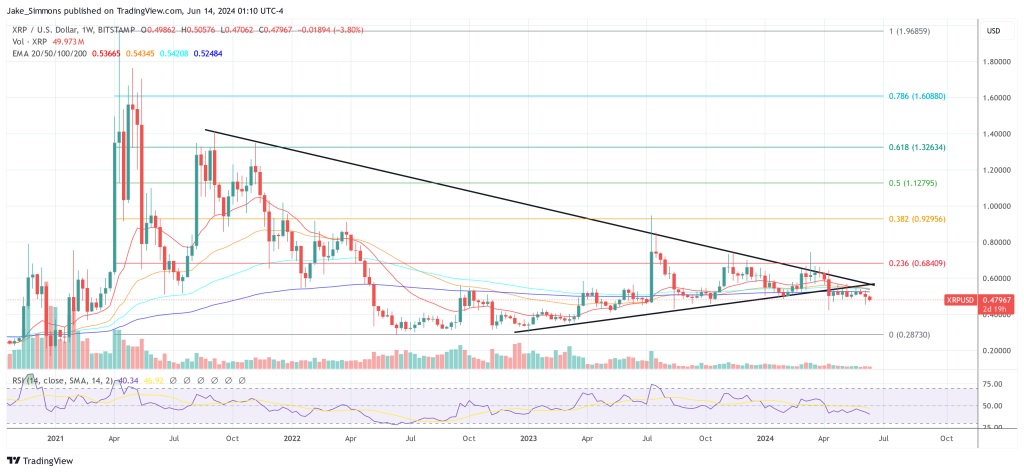ARTICLE AD BOX
In the ongoing high-stakes legal battle between Ripple Labs Inc. and the US Securities and Exchange Commission (SEC), the fintech company has submitted a significant notice of supplemental authority to the Southern District of New York. This recent filing, dated June 13, 2024, aims to shift the judicial perspective regarding the SEC’s pending motion for remedies and the entry of a final judgment
Ripple Vs. SEC Court Update
Highlighting a parallel SEC case against Terraform Labs, Ripple’s legal representatives present a comparative analysis, arguing for a more equitable treatment in their own case. The filing strategically references the SEC vs. Terraform Labs Pte. Ltd., where Terraform and its CEO Do Hyeong Kwon were found liable for conducting “one of the largest securities frauds in US history,” as described by the SEC.
In that case, the court approved a final consent judgment on June 12, 2024, which resulted in Terraform Labs being ordered to pay approximately $3.59 billion in disgorgement and a $420 million civil penalty, corresponding to about 1.27% of Terraform’s $33 billion gross sales. Ripple’s notice, authored by Michael K. Kellogg of Kellogg, Hansen, Todd, Figel & Frederick, P.L.L.C., leverages this outcome to challenge the proportionality of the SEC’s demands.
The document filed by Ripple’s counsel compares the SEC’s treatment in the Terraform case with its approach towards the company, highlighting a stark contrast in penalties relative to the severity of allegations. The lawyers point out that unlike Terraform, which was involved in extensive fraudulent activities leading to significant investor losses, Ripple’s case involves no allegations of fraud.
Furthermore, they argue that the penalties sought by the SEC are disproportionately high, citing that penalties in similar previous cases ranged only from 0.6% to 1.8% of the defendant’s gross revenues. The submission includes the following statement to underline this disparity: “The civil penalty sought by the SEC in Terraform demonstrates the unreasonableness of the civil penalty sought by the SEC in this case.”
Moreover, Ripple’s legal team asserts that such an unbalanced penalty is not only unprecedented but also unjust, given the absence of direct financial harm to institutional buyers typically associated with cases of this nature.
By drawing parallels with the Terraform case, Ripple’s legal strategy is aimed at illustrating what it perceives as an inconsistency in the SEC’s application of penalties. This tactic not only questions the fairness of the SEC’s actions but also seeks to establish a basis for negotiating a more reasonable penalty.
Ripple’s counsel argues for a civil penalty cap at $10 million, significantly lower than the SEC’s proposed $2 billion fine for selling XRP to institutional investors.
At press time, XRP traded at $0.47967.

.png)
 9 months ago
9
9 months ago
9








 English (US)
English (US)